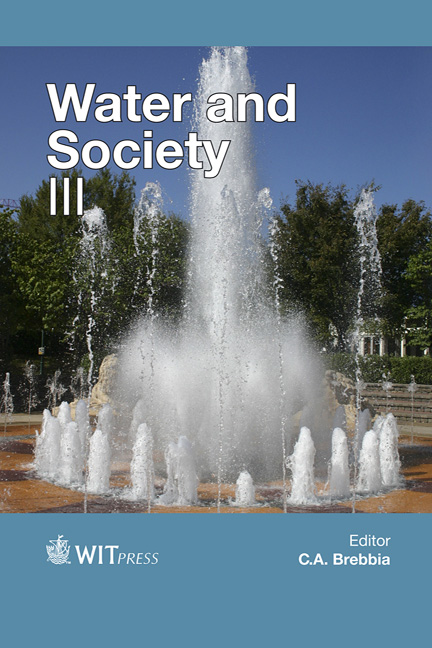Water Supply Resilience In Coastal Communities: Using DPSIR To Assess The Next Urban Water Paradigm
Price
Free (open access)
Transaction
Volume
200
Pages
13
Page Range
15 - 27
Published
2015
Size
671 kb
Paper DOI
10.2495/WS150021
Copyright
WIT Press
Author(s)
P. Díaz, D. Yeh
Abstract
Issues related to growing urban populations, protecting the environment and adapting to the changing climate cannot be ignored, especially when it comes to providing reliable water supply to urban areas. Cities worldwide must look to shift away from the traditional urban water management paradigm, characterized by a fragmented approach, and shift to form a new paradigm; one that manages the urban water cycle as a single resource, satisfying contemporary issues and adapting to future needs. Understanding the anticipated effects of future issues is key before a new paradigm can be formed.
This paper analyses the potential impacts to vulnerable urban water supply in the coastal realm by using the DPSIR (Driver-Pressure-State-Impact-Response) framework. Dunedin, a highly urbanized coastal city (on the Gulf coast of Florida, USA) is used as a case study to map out drivers, pressures, potential impacts and successful responses to water related issues. In doing so, this case study serves to showcase IUWM (Integrated Urban Water Management) as the future urban water paradigm and provides practical lessons learned for resilient cities of the future. Where most IUWM case studies in literature explore only greywater and wastewater reuse, this paper evaluates the entire urban water cycle beginning with the sustainable extraction of groundwater through discharge. As a nearly closed loop system, Dunedin’s challenges and responses provide an optimistic case for IUWM. Innovative groundwater management strategies, investment in infrastructure technology and aggressive recycling and conservation have contributed toward greater sustainability and resilience.
Keywords
adaptation, AMR, DPSIR, IUWM (Integrated Urban Water Management), reclaimed water, reverse osmosis, urban water cycle, urban wellfield, wastewater reuse





